Introduction
Though many purists criticised the Countryman at its launch in 2010 for not being so ‘Mini’, the many buyers of the brand’s first SUV clearly weren’t as fussed as this quickly became one of the brand’s biggest selling models.
A second-generation model arrived in 2016, bringing welcome tech improvements and growing in size to make it even more accommodating to families, while also being available as a plug-in hybrid – this being the brand’s first electrified model.
It’s also recently benefited from a mid-life update, which sees the addition of standard-fit LED lights at the front and rear – including the modern Union Jack-inspired design at the rear – along with new paint finishes and alloy wheels to make it stand out from previous cars. Inside, a new digital dashboard is also introduced. But has this improved this small SUV for the best? Let’s take a look.
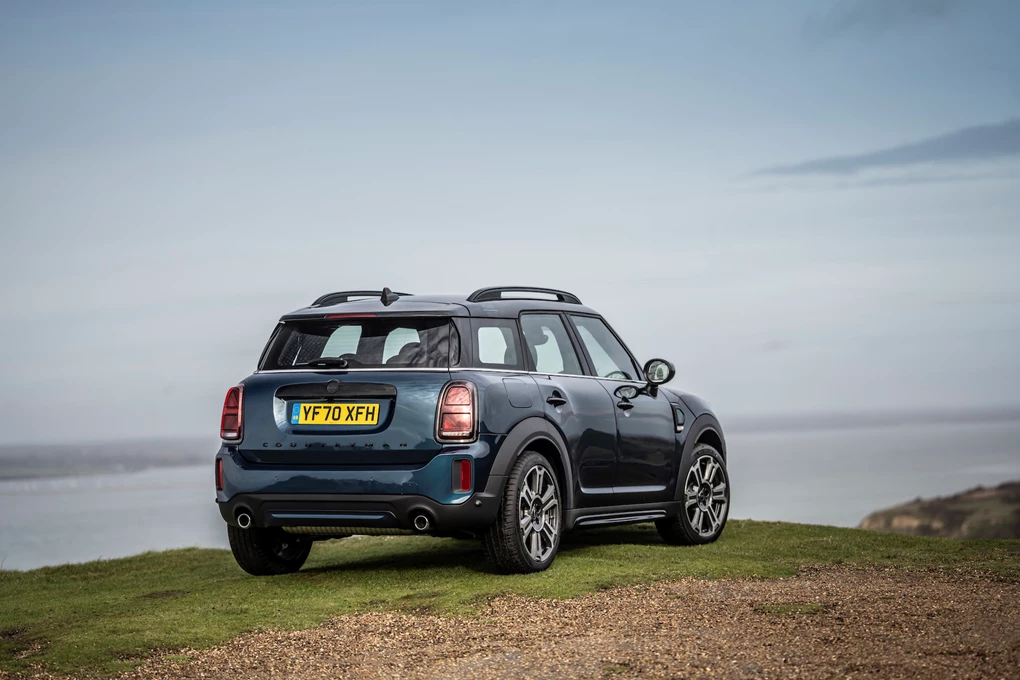
Performance
Mini recently moved diesel from the range of its Countryman, meaning the line-up now consists of purely petrol options or a plug-in hybrid.
Let’s start with the petrol options, which consist of the Cooper, Cooper S and John Cooper Works. The Cooper uses a 134bhp 1.5-litre petrol engine that allows for a 0-60mph time of 9.5 seconds, while Mini claims up to 44.8mpg. Both the Cooper S and John Cooper Works (JCW) use a 2.0-litre unit, and produce 176bhp and 302bhp respectively. The S can sprint to 60mph in 7.1 seconds, while the JCW – which uses the brand’s most powerful engine yet – can achieve it in just 4.9 seconds.
As for the PHEV, it combines the engine from the Cooper with an electric motor and battery for a combined 217bhp, which unlocks a 0-60mph time of 6.6 seconds. Mini claims it can also travel on electricity for up to 30 miles, which allows for a claimed fuel economy figure of up to 166.2mpg, along with CO2 emissions of just 44g/km.
All-wheel-drive is available across the range (it’s standard on the JCW and PHEV), though you’ll need to configure a car with an automatic gearbox on the Cooper and S to get this greater traction.
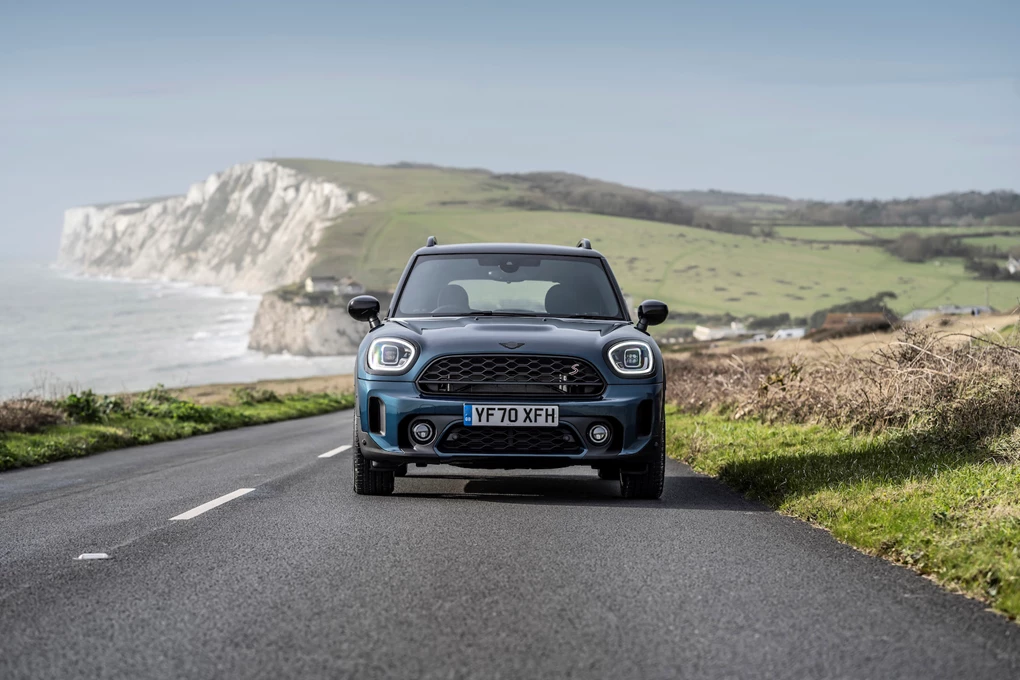
Ride and handling
Mini has a great reputation for making cars that are fun to drive, and though the Countryman might be the British brand’s largest car, this model still delivers. It’s one of the best handling models in its class, with quick steering and plenty of grip meaning you’re happy to push it further than you would be in many rivals. This applies across the range, too, whether you’re looking at an entry-level Cooper or top-spec JCW.
It’s also comfortable, though if you kit out the Countryman with alloy wheels that are too big the ride does become quite firm on poor surfaces or around potholes. On the plus side, it’s an impressive model on longer trips thanks to minimal wind, road and tyre noise.
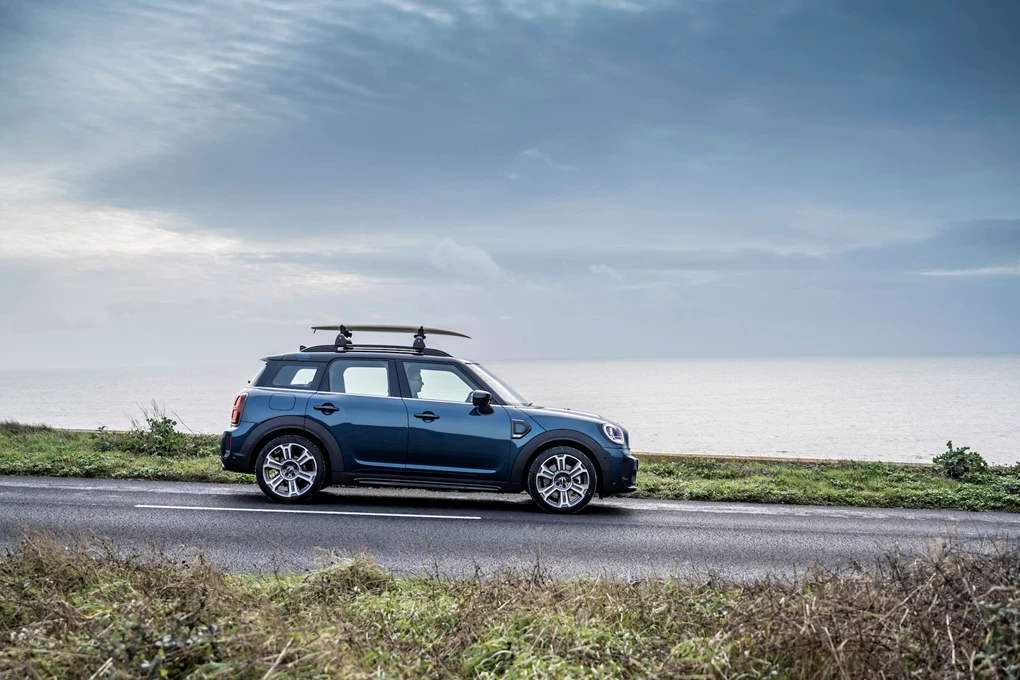
Interior and equipment
Mini interiors are arguably some of the best around, and a showcase in how funky elements can be combined with great build quality. The ergonomics are fantastic, while the cool toggle-like switches in the centre console remain intact. A large 8.8-inch touchscreen is integrated well into the round circular display that once housed the speedometer in Minis, while the latest model adopts a more modern digital dial screen.
It’s also by far the most practical model in the Mini line-up, with plenty of rear seat space even for adults, while a 450-litre boot is one of the larger ones in this segment. It’s worth noting the boot of the hybrid is slightly smaller, though not especially noticeable in day-to-day use.
In terms of standard equipment, all Countryman models boast front and rear LED lights, an 8.8-inch touchscreen with satellite navigation, rear parking sensors and keyless entry. After this, you can choose from three specification packs – Classic, Sport and Exclusive.
Classic brings 16- or 17-inch alloy wheels (depending on engine), a body-coloured roof and a grey headlining. Sport then brings upgraded 18-inch alloy wheels, a black roof and mirrors, a JCW styling kit and sports suspension. The Exclusive features the choice of 18- or 19-inch alloy wheels, along with a silver roof and mirrors and leather seats.
At the top of the range the John Cooper Works gains the more powerful engine along with a Torsen mechanical differential, Alcantara and leather sports seats, climate control, a reversing camera and heated seats.
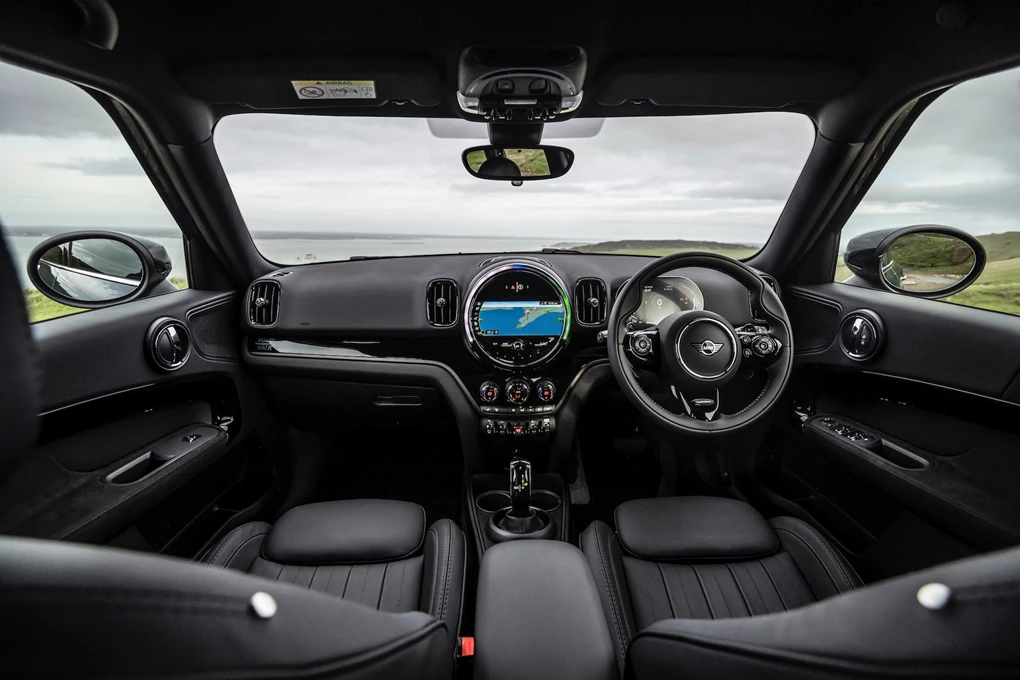
Cost
There’s quite a difference in price depending on which Countryman version you go for – starting from a reasonable £24,805 for a Cooper Classic and rising to a steep £37,825 for the John Cooper Works.
You also want to be careful not to get too carried away with optional extras, as even with a handful of goodies chosen it can easily add another £5,000 to the price of this small SUV.
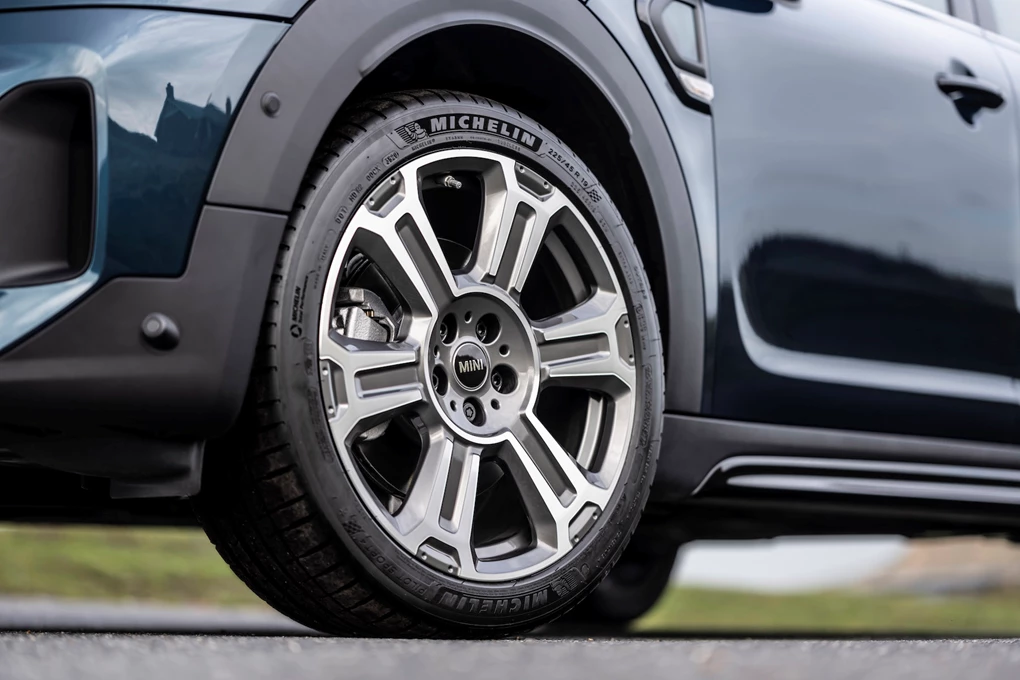
Verdict
Like before, the Countryman remains a fun-looking small SUV that also happens to be rather good to drive. With a practical interior and high-quality feel, it certainly ticks plenty of boxes for buyers in this market.
Updates to technology and personalisation are both welcome, and though this Mini can be pricey, on the whole it’s generally a very appealing option in this crowded sector.
Enquire on a new Mini Countryman



